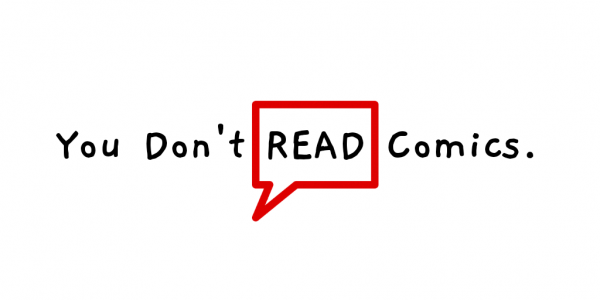Gunning For Hits #1 // Review
Martin Mills is a music industry A&R guy. Like any other good A&R guy, he knows how to make deals with rising talent. Unlike any other good A&R guy, he’s kind of a sociopath. Martin Mills is the subject of the new ongoing comic book, Gunning For Hits, so he’s, y’know, fictional. There’s something familiar about the way music producer, Jeff Rougvie, writes this comic book, though. The level of detail and industry knowledge in the story make it totally clear that Mills is only technically fictional. We should know by now that the music industry is ugly. Rougvie wants to show us all the warts, and does so with the aid of artist, Moritat, with color and letters by Casey Silver.
Set in the seedy recording industry of the 1980s, Gunning For Hits follows the life of Artist and Repertoire guy Martin Mills. The introductory issue has him negotiating a recording contract with ultra-talented, billionaire-hopeful Billy, a young rocker from Madison, WI. Narrated by Martin, the first issue focuses entirely on Mills negotiating a contract that just might allow Billy to get a start that includes opening for the comeback of rock and roll mega-legend, Brian Slade. The high-stakes negotiations are punctuated by Mills’ in-depth description of the behind-the-scenes business of the music industry. Tensions escalate. Things get weird. We learn that there’s more to Martin Mills than we think, and I hope the journey will move backward as well as forward. Not a bad intro to an ongoing series.
In his accompanying autobiographical timeline at the end of the first issue, Rougvie talks about the lengthy gestation of what he describes as an “oddball book starring an amoral sociopath with nothing to lose.” Okay... Now, this sort of thing has made it into comics before, but not with the specific flavor of the recording industry circa mid-80’s. Mills’ narration carries the first issue quite well. Given the author’s background, the language feels irrepressibly authentic. (Rougvie has firsthand experience in this field, having spent decades working at record label, Rykodisc.) The music industry jargon is nice and everything, but it wouldn’t be anything without delivering a good story. Thankfully, Rougvie is telling the story of a character he’s already spent a lot of time with. That timeline also mentions that the entire life of Martin Mills has already been plotted, including his death. It’s a pleasure to dive into a new series with that in mind. Rougvie has also developed a really fun marketing backbone for the comic book that includes a playlist for each issue. Martin has his own twitter account which will include excerpts from the character’s journals including clues about Mills’ shady past. Rougvie seems intent on creating an immersive world for the character that any reader would love to dive into.
Moritat’s art mixes gritty realism with a rubbery impressionistic characterization that gives the opening issue a fun visual accent. The concept is weird enough for a comic book as it is. Opening the series with an issue-length negotiation would seem to be some kind of suicide maneuver, but Moritat keeps it interesting and engrossing throughout. Of particular note is the extended interlude in which Mills explains the inner workings of the music industry. It’s a cute delivery of what could have easily come across as dry background info.
Letterer Casey Silver is given a great deal of work in Mills’ “music industry for dummies” section of the issue. In an issue dominated by dialogue, Silver has found a really tight lettering style that serves the issue quite well. His coloring in this issue is suitably murky. It’s a shadowy back room of a nightclub without much detail. It’s all grays and browns and khakis, lurking around the edges of the art. It’s moody, with just the right highlights.
This is a very promising start to a story that will seamlessly bleed over into a number of other formats. It’s not difficult to imagine this story translating well with actors - on a glowing rectangle of some sort. Moritat has done a great job of delivering Rougvie’s inside-the-music-industry drama to the comic book page, punctuating a very promising debut.










